Prehistoric jewelry reveals 9 distinct cultures across Stone Age Europe (www.livescience.com)
Tens of thousands of years ago, prehistoric humans in Europe adorned themselves with such a wide variety of beads that researchers have classified nine distinct cultural groups across the continent based on their location and distinctive styles....

Excavated dolmen in Sweden one of the oldest in Scandinavia (phys.org)
Last summer, archaeologists from Gothenburg University and Kiel University excavated a dolmen, a stone burial chamber, in Tiarp near Falköping in Sweden. The archaeologists judge that the grave has remained untouched since the Stone Age. First analysis results now confirm that the grave in Tiarp is one of the oldest stone...
Engraving on 2,000-year-old knife thought to be oldest runes in Denmark (www.theguardian.com)
Inscription on knife discovered by archaeologist in grave on island of Funen spells hirila, which means ‘little sword’...

1,000-year-old cemetery with dead wearing dramatic rings on their necks and buckets on their feet found in Ukraine (www.livescience.com)
Archaeologists in Ukraine have discovered a 1,000-year-old cemetery whose dead were buried with weapons, jewelry and, curiously, buckets around some of their feet....
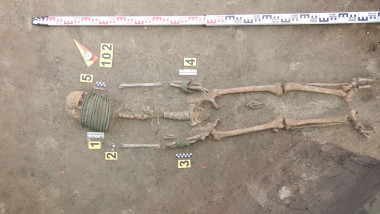
Ancient Roman necropolis holding more than 60 skeletons and luxury goods discovered in central Italy (www.livescience.com)
A Roman-era necropolis that likely holds the remains of the upper crust has been discovered in central Italy, and it contains nearly 60 graves replete with gold jewelry and the remains of leather footwear, pottery and other precious goods....

Part of Hadrian's 1,800-year-old aqueduct and rare Greek coins unearthed near Corinth (www.livescience.com)
Archaeologists in Greece have unearthed part of one of the largest hydraulic projects from the ancient world: an aqueduct that the Roman emperor Hadrian built to supply water to the city of Corinth....
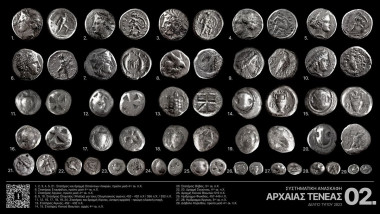
2,700-year-old temple with altar overflowing with jewel-studded offerings unearthed on Greek island (www.livescience.com)
Archaeologists in Greece have discovered a 2,700-year-old temple that houses a horseshoe-shaped altar overflowing with offerings....

Medieval belt buckle of 'dragon' eating frog discovered in Czech Republic may be from unknown pagan cult (www.livescience.com)
The puzzling depiction of a vicious predator — either a dragon or a snake — devouring a frog on an early medieval belt buckle from the Czech Republic may be a symbol from an unknown pagan cult, archaeologists say....
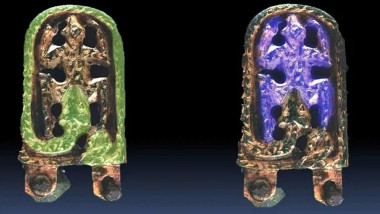
Medieval 'curse tablet' summoning Satan discovered at the bottom of a latrine in Germany (www.livescience.com)
Archaeologists in Germany have discovered a rolled-up piece of lead that they think could be a medieval “curse tablet” that invokes “Beelzebub,” or Satan....
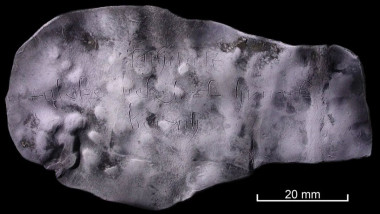
1,500-year-old gold buckles depicting ruler 'majestically sitting on a throne' discovered in Kazakhstan (www.livescience.com)
Archaeologists in Kazakhstan have discovered two gold ornaments in a 1,500-year-old tomb that feature the earliest known depictions of the great khan, or “khagan,” of the Göktürks — a nomadic confederation of Turkic-speaking peoples who occupied the region for around three centuries, according to an archaeologist who...
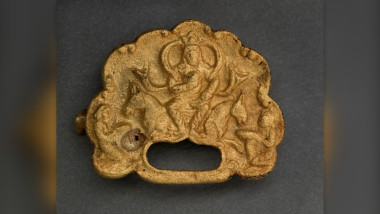
‘Amazing’: Queensland mum uses electric car to ‘save’ son’s life with dialysis during power outage (www.theguardian.com)
An electric vehicle owner has used her car’s emergency power system to run her 11-year-old son’s lifesaving dialysis machine and another has ridden to the rescue of his neighbours after devastating storms cut power in south-east Queensland....

90,000-year-old human footprints found on a Moroccan beach are some of the oldest and best preserved in the world (www.livescience.com)
Two trails of ancient human footprints pressed into a beach in Morocco form one of the largest and best-preserved trackways in the world....
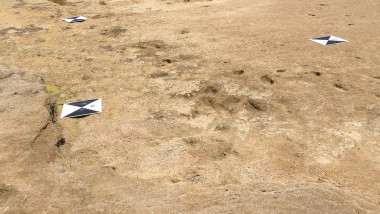
Archeologists find hundreds of preserved artefacts in 200-year-old ship wreckage (www.independent.co.uk)
Archaeologists have found hundreds of preserved artefacts within the remnants of the HMS Erebus nearly two centuries after it sank in Arctic Canada....
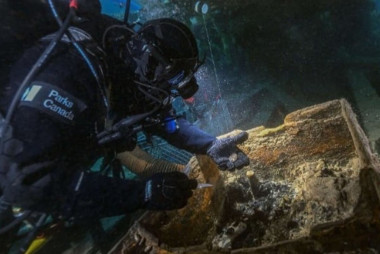
Remains of ‘lost’ bronze age tomb discovered in County Kerry in Ireland (www.theguardian.com)
The remnants of a bronze age tomb once thought to have been destroyed and lost to history have been discovered in County Kerry on the Atlantic coast of Ireland....
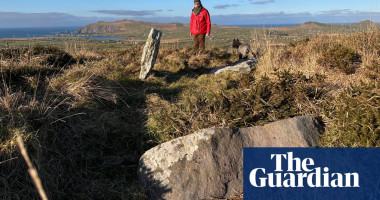
'Extremely rare' 2,500-year-old broken silver coin unearthed near Jerusalem (www.livescience.com)
A broken 2,500-year-old silver coin unearthed near Jerusalem is rare evidence that early currency was used in ancient Judea, according to archaeologists....
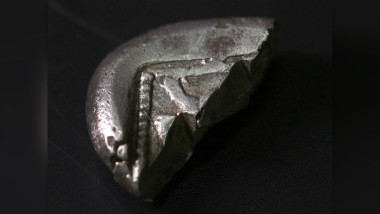
Are 3,000-year-old carvings from Italy a star map? Researchers can't agree. (www.livescience.com)
A roughly 3,000-year-old stone disk covered with enigmatic markings is actually an ancient celestial map marking the brightest stars in the night sky, researchers claim....

Ancient fortifications revealed underneath Bronze Age village on Italian island (www.livescience.com)

Lasers reveal ancient settlements hidden deep in the Amazon rainforest (www.livescience.com)
Lasers have revealed a complex network of pre-Hispanic structures and roadways hidden beneath the canopy of the Amazon. At 2,500 years old, it’s the earliest (and largest) example of an agricultural civilization ever recorded in South America’s dense rainforest....
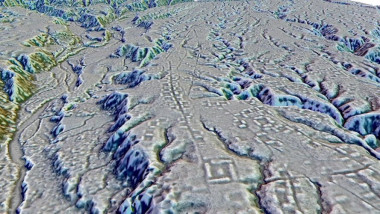
A princess's psalter recovered? Pieces of a 1,000-year-old manuscript found (phys.org)
A special find has been made in the Alkmaar Regional Archive: A number of 17th-century book bindings contained pieces of parchment from a manuscript from the 11th century. The original manuscript may have belonged to a princess who fled England after the Norman Conquest....
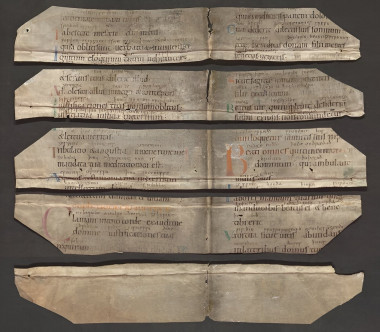
2 golden tongues symbolizing 'flesh of the gods' unearthed in ancient Egyptian mummies (www.livescience.com)
Archaeologists in Egypt have discovered two mummies outfitted with golden tongues at the ancient town of Oxyrhynchus, bringing the total number of golden tongues found at the location to 16, archaeologists say....
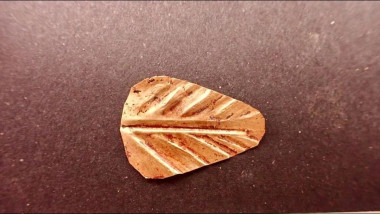
First prehistoric person with Turner syndrome identified from ancient DNA (phys.org)
Researchers at the Francis Crick Institute, working with University of Oxford, University of York and Oxford Archaeology, have developed a new technique to measure the number of chromosomes in ancient genomes more precisely, using it to identify the first prehistoric person with mosaic Turner syndrome (characterized by one X...
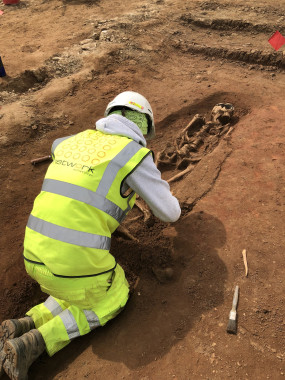
Discovery of immense fortifications dating back 4,000 years in northwestern Arabia (phys.org)
The North Arabian Desert oases were inhabited by sedentary populations in the 4th and 3rd millennia BCE. A fortification enclosing the Khaybar Oasis—one of the longest known going back to this period—has just been revealed by a team of scientists from the CNRS and the Royal Commission for AlUla (RCU)....
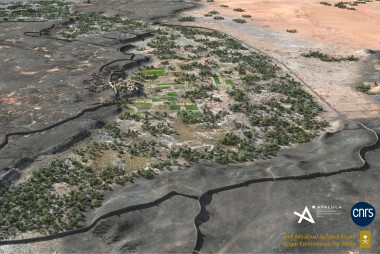
First ever scientific study on First World War crater reveals new details on its history (phys.org)
The spectacular explosion of the mine at Hawthorn Ridge—a fortified German front-line position in the First World War—marked the beginning of the Battle of the Somme, and remains one of the best-known pieces of film from the whole conflict....

The strange story of the grave of Copernicus (theconversation.com)
Nicholas Copernicus was the astronomer who, five centuries ago, explained that Earth revolves around the Sun, rather than vice versa. A true Renaissance man, he also practised as a mathematician, engineer, author, economic theorist and medical doctor....
